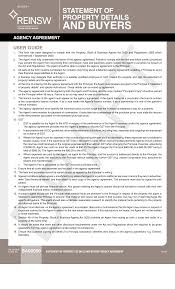
You've worked hard, studied long hours and made it to the end. You have successfully passed your state license exam in real estate and are now ready for your next step. Now, you might be wondering what to do next.
First, you must join a broker to complete your licensing requirements. You will need to find a licensed principal broker who will hire you and pay your licensing fee. The best decision you will make as a realty professional is to choose the right employer.
First, sign up to take a pre-licensing class for brokers. These courses usually last about 75 hours. These courses are available online, at real estate schools, and in traditional classroom settings. The courses provide basic knowledge and skills in ethics and law to ensure that you are able to navigate the realty transaction process.
Once you've completed the pre-licensing training, you can sit for the state real estate salesperson exam at your local testing center. The multiple-choice questions are repeated for 90 minutes. A photo-bearing report will be sent to you that will tell you if you passed.

The next step after passing your state exam is to submit a temporary Alabama salesperson license application and supporting documents to the Alabama Real Estate Commission (AREC). Once the AREC receives these documents, they will send you an official score report and allow you a year to apply for your full-time permanent Alabama salesperson license.
Within 30 days of filing your temporary salesperson application to the AREC, you must have your fingerprints taken. After the background check is complete, you will be able submit your permanent license application to the AREC. You can then begin your career as a broker sales representative.
It is essential that you have your fingerprints taken to verify your employment and background. After you have completed this, you can begin interviewing with managing brokers in the region you intend to serve.
Your broker can help to find the best leads for real estate. Additionally, they will help build your business as well as teach you how sell. They'll also provide you with guidance, support, and encouragement as you embark on your new real estate career.
After you have been licensed, the next step is to market your self. Social media will be a good way to promote yourself to potential clients. You can also start a blog, website, or any other online presence that will help get your business noticed.

A great way to market yourself is to reach out to your family, friends and acquaintances. These people could be able or willing to refer potential clients to you who are looking to hire an agent.
Real estate markets are constantly changing. It is important to stay on top of current developments in your local area. This will allow you to have the knowledge base necessary to start your own business.
FAQ
What are the benefits to a fixed-rate mortgage
Fixed-rate mortgages guarantee that the interest rate will remain the same for the duration of the loan. This means that you won't have to worry about rising rates. Fixed-rate loans come with lower payments as they are locked in for a specified term.
Is it better to buy or rent?
Renting is typically cheaper than buying your home. But, it's important to understand that you'll have to pay for additional expenses like utilities, repairs, and maintenance. The benefits of buying a house are not only obvious but also numerous. You will have greater control of your living arrangements.
What are the key factors to consider when you invest in real estate?
The first step is to make sure you have enough money to buy real estate. If you don’t have the money to invest in real estate, you can borrow money from a bank. It is important to avoid getting into debt as you may not be able pay the loan back if you default.
You must also be clear about how much you have to spend on your investment property each monthly. This amount must include all expenses associated with owning the property such as mortgage payments, insurance, maintenance, and taxes.
Finally, ensure the safety of your area before you buy an investment property. It would be best if you lived elsewhere while looking at properties.
What are the most important aspects of buying a house?
The three most important factors when buying any type of home are location, price, and size. The location refers to the place you would like to live. Price refers to what you're willing to pay for the property. Size refers how much space you require.
Statistics
- When it came to buying a home in 2015, experts predicted that mortgage rates would surpass five percent, yet interest rates remained below four percent. (fortunebuilders.com)
- The FHA sets its desirable debt-to-income ratio at 43%. (fortunebuilders.com)
- Some experts hypothesize that rates will hit five percent by the second half of 2018, but there has been no official confirmation one way or the other. (fortunebuilders.com)
- Private mortgage insurance may be required for conventional loans when the borrower puts less than 20% down.4 FHA loans are mortgage loans issued by private lenders and backed by the federal government. (investopedia.com)
- This seems to be a more popular trend as the U.S. Census Bureau reports the homeownership rate was around 65% last year. (fortunebuilders.com)
External Links
How To
How do you find an apartment?
Moving to a new place is only the beginning. This involves planning and research. It involves research and planning, as well as researching neighborhoods and reading reviews. You have many options. Some are more difficult than others. Before renting an apartment, you should consider the following steps.
-
You can gather data offline as well as online to research your neighborhood. Websites such as Yelp. Zillow. Trulia.com and Realtor.com are some examples of online resources. Local newspapers, landlords or friends of neighbors are some other offline sources.
-
You can read reviews about the neighborhood you'd like to live. Yelp and TripAdvisor review houses. Amazon and Amazon also have detailed reviews. You might also be able to read local newspaper articles or visit your local library.
-
Make phone calls to get additional information about the area and talk to people who have lived there. Ask them about their experiences with the area. Ask for their recommendations for places to live.
-
Be aware of the rent rates in the areas where you are most interested. If you are concerned about how much you will spend on food, you might want to rent somewhere cheaper. If you are looking to spend a lot on entertainment, then consider moving to a more expensive area.
-
Find out more information about the apartment building you want to live in. What size is it? What's the price? Is the facility pet-friendly? What amenities do they offer? Are you able to park in the vicinity? Are there any special rules for tenants?